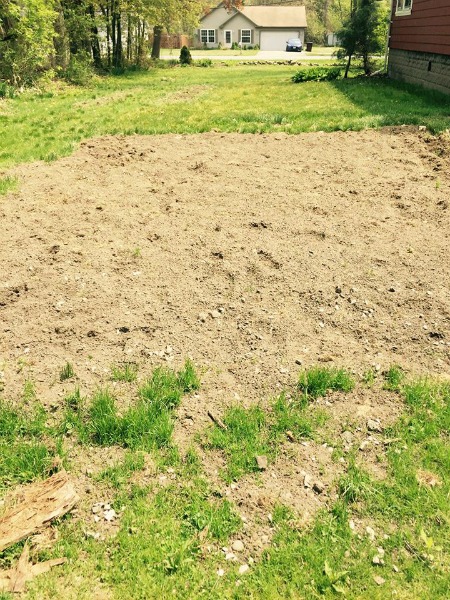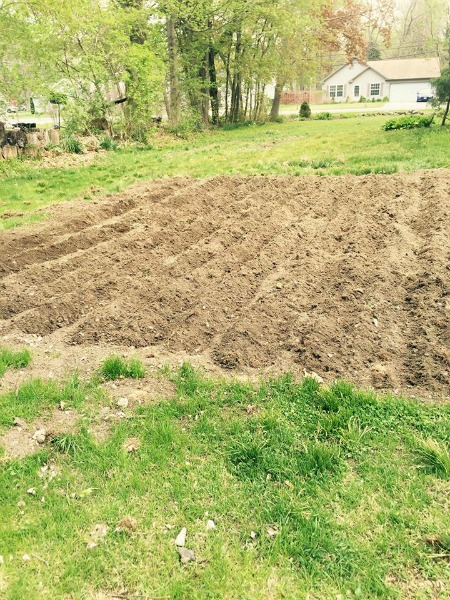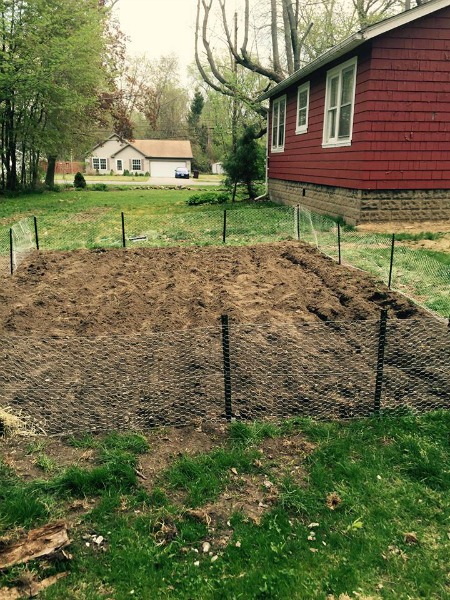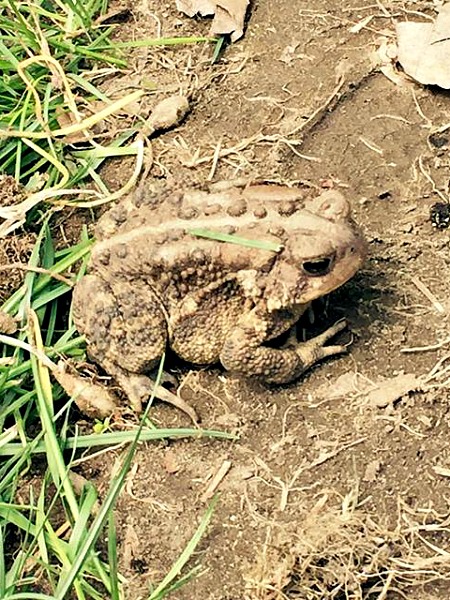How to Start a Vegetable Garden
More people these days, like me, want to start a vegetable garden for the very first time. But if you have no experience in vegetable gardening, you may not know how to begin.
Growing your own food doesn’t require a lot of money or fancy gadgets. You can start with just a few basic tools. You’ll need a good, strong shovel or hand trowel. A hoe will come in
handy for weeding, and you may want a pair of gardening gloves to protect your hands and a pair of pruners for harvesting prickly cucumbers or cutting through tough squash stems.
You should know what growing zone you live in so you can plan on growing vegetables appropriate for your climate. If your growing season is short, vegetables with a long growing season would not be a good choice for an inexperienced gardener.
You can find your growing zone here: http://www.usna.usda.gov/Hardzone/ushzmap.html

20′ x 16′ tilled
Now decide where the garden will be. Nearly all vegetable plants require at least six hours of sunlight each day. The garden should receive plenty of sunlight, and it should also be fairly close to your house.
Finding a suitable location for the garden may also determine the size of the garden. But even if you have nearly unlimited space to work with, don’t go overboard with your first garden
by making it too large and unmanageable. Start out small the first year.
Next, prepare the soil for planting. If the soil is heavy clay, or if it is weak and can barely even support a weed, you may choose to build raised beds for your vegetable garden. You can
learn how to create raised beds here: http://freeplants.com/preparing-raised-planting-beds.htm

Raked and hoed to remove onion grass and large rocks
If the soil in your garden is already rich, a raised bed may not be necessary. If this is the case, you can begin by tilling the soil or turning it with a shovel, then raking the soil to make a
smooth bed for the seeds.

Chicken wire and posts, $90. Hopefully this will keep the pests away!
Once the soil is prepared and all danger of frost has passed in your area, it’s time to start planting. If you aren’t quite sure what to plant in your garden, begin by making a list of the vegetables your family enjoys eating the most.
Stick with plants that are easy to grow such as leaf lettuce and other greens, beans, cucumbers, onions, peas, potatoes, pumpkins, radishes, spinach and zucchini. This article explains how to plant specific seeds: http://freeplants.com/garden-seeds.html
Don’t be afraid to make mistakes with your first garden. You’ll learn a lot from those mistakes. A good gardener never stops learning how to garden even better.
As I was planting the strawberry plants, I noticed movement to my left.
 This little fella saw me digging and was smart enough to know that he might get an easy meal! Sure enough, the first grub I came across I tossed to him and he ate it up! I would like a few of his friends to hang out in my garden to take care of any insects!
This little fella saw me digging and was smart enough to know that he might get an easy meal! Sure enough, the first grub I came across I tossed to him and he ate it up! I would like a few of his friends to hang out in my garden to take care of any insects!
For even more details about starting a vegetable garden for the first time, go to http://freeplants.com/vegetable-garden-starting.html
Mike. Is horse manure ok for garden and trees etc.
Charles,
The more composted the better. Most manure is best when use once it’s been aged. Fresh horse manure contains a lot of viable weed seeds because of the way that a horses digestive system works.
We put tomatoes in our garden every year and about the time they are ready to pick…….deer help themselves to them and it decreases our yield. What can we do ? We are in Alabama.
Thank you.
Sandra,
You can search this site for homemade deer repellents or put up a fence. Those are really your best options.
Hi Mike, I thank you for all your many tips. Maybe you can help me. I live in S.W. Central Fl. The soil here is sandy with NO nutrients. With either a raised bed or tilling the ground, what do you suggest for me to use as far as soil. I have started purchasing back in Feb. bags of MiracleGro flower & veg. soil. What if any, would be your suggestion to mix up with this.
Ginny,
Any well rotted organic matter will work. Bagged cow manure is great!